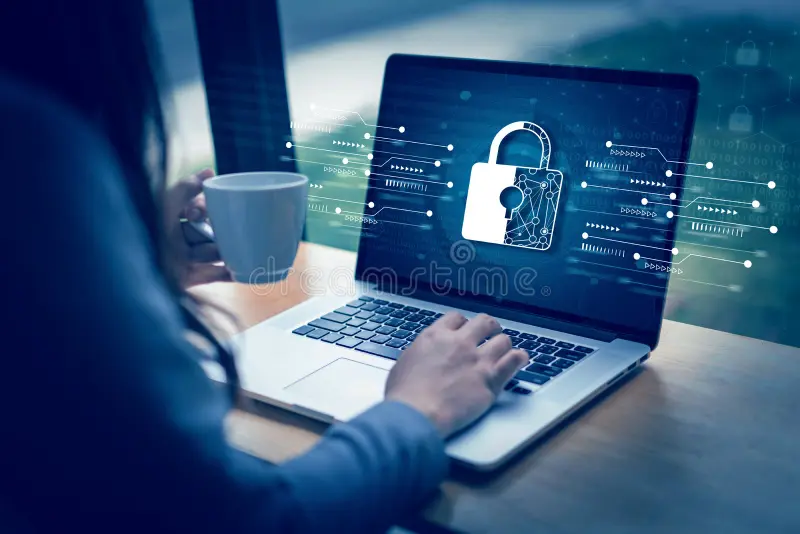Encryption is a critical component of modern cybersecurity practices. It ensures that even if sensitive data is intercepted by unauthorized individuals, it cannot be read or used without the proper decryption key. Encrypting sensitive data is vital for protecting your business from data breaches, legal liabilities, and reputational damage.
What is Data Encryption?
Data encryption is the process of converting readable data (plaintext) into an unreadable format (ciphertext) using an algorithm and an encryption key. Only those with the correct decryption key can reverse the encryption and access the original data. Encryption can be applied to data both in transit (when being transmitted over a network) and at rest (when stored on servers or databases).
Why Encrypt Sensitive Data?
- Protects Confidential Information
- Sensitive business data, including customer information, financial records, and intellectual property, must be safeguarded from unauthorized access. Encryption ensures that even if hackers gain access to your network or data storage, they will not be able to read or use the data without the decryption key.
- Compliance with Regulations
- Many industries have stringent data protection regulations that require businesses to encrypt sensitive data. For example, the General Data Protection Regulation (GDPR) in the EU and the Health Insurance Portability and Accountability Act (HIPAA) in the US both require businesses to take steps to protect personal and health-related data, including encryption. Failing to comply with these regulations can result in hefty fines and legal penalties.
- Mitigates the Impact of Data Breaches
- In the event of a data breach, encrypted data is far less valuable to cybercriminals because they cannot access or use it without the decryption key. Encrypting sensitive data helps mitigate the damage caused by data breaches and limits the exposure of critical business information.
- Builds Customer Trust
- Customers expect their personal data to be handled securely. By encrypting sensitive information, businesses demonstrate their commitment to protecting customer privacy. This can help build trust and loyalty, leading to increased customer confidence and retention.
- Secures Communication Channels
- Encrypting email and other communication channels helps protect the privacy of your business’s correspondence. Even if emails or messages are intercepted, encryption ensures that the content remains secure and unreadable without the proper key.
How to Encrypt Sensitive Data
- Use Strong Encryption Algorithms
- When encrypting sensitive data, always use strong encryption algorithms, such as AES (Advanced Encryption Standard) with a key size of at least 256 bits. AES is widely regarded as one of the most secure encryption standards and is used by governments and organizations worldwide.
- Encrypt Data in Transit (During Transmission)
- When sending data over the internet or a network, ensure it is encrypted using protocols such as TLS (Transport Layer Security) or SSL (Secure Sockets Layer). These protocols encrypt data between the sender and receiver, preventing eavesdropping or tampering by unauthorized third parties.
- Encrypt Data at Rest (While Stored)
- Sensitive data stored on servers, hard drives, or cloud storage should be encrypted at rest. This ensures that even if an attacker gains access to the physical storage, the data will remain unreadable without the correct decryption key.
- Use File-Level Encryption
- Encrypt individual files and documents that contain sensitive data. This way, even if a device or server is compromised, only specific files are affected, rather than the entire data set.
- Encrypt Backup Data
- Backups are a critical part of disaster recovery. Ensure that backup data is encrypted, whether it is stored locally or in the cloud. This protects your business from losing sensitive information in the event of data theft or a breach.
- Key Management
- The security of encrypted data is only as strong as the management of the encryption keys. Proper key management practices are essential. Use secure methods to store and handle encryption keys, and ensure that keys are rotated regularly to mitigate the risk of key exposure.
- Use End-to-End Encryption (E2EE) for Communication
- End-to-End Encryption (E2EE) is a method of encryption where data is encrypted on the sender’s device and only decrypted on the receiver’s device. This ensures that no one in between (including service providers or hackers) can access the communication. This is especially important for messaging apps and email communications containing sensitive information.
Common Encryption Tools and Techniques
- BitLocker (Windows): A built-in encryption tool for Windows devices that encrypts the entire hard drive to protect data at rest.
- VeraCrypt: A popular open-source encryption tool for creating encrypted containers and full disk encryption.
- FileVault (Mac): Apple’s disk encryption software, which secures data on Mac computers by encrypting the entire disk.
- PGP (Pretty Good Privacy): A method for encrypting emails and files, ensuring the content remains confidential.
- SSL/TLS: A protocol for securing data in transit over the internet. Ensure that your website uses HTTPS (an SSL-secured version of HTTP) for secure communication.
Conclusion: The Importance of Encrypting Sensitive Data
Encryption is one of the most effective ways to protect sensitive business data from unauthorized access and cyber threats. Whether you are safeguarding customer information, financial records, or intellectual property, encryption plays a vital role in maintaining confidentiality, meeting compliance requirements, and mitigating the impact of data breaches.
By implementing strong encryption practices both for data in transit and at rest, and ensuring proper encryption key management, you can significantly reduce your risk and provide a higher level of security for your business and customers. If you need assistance with encrypting your sensitive data, a Managed IT Service Provider (MSP) like BitNix can help you implement encryption strategies tailored to your specific business needs.



